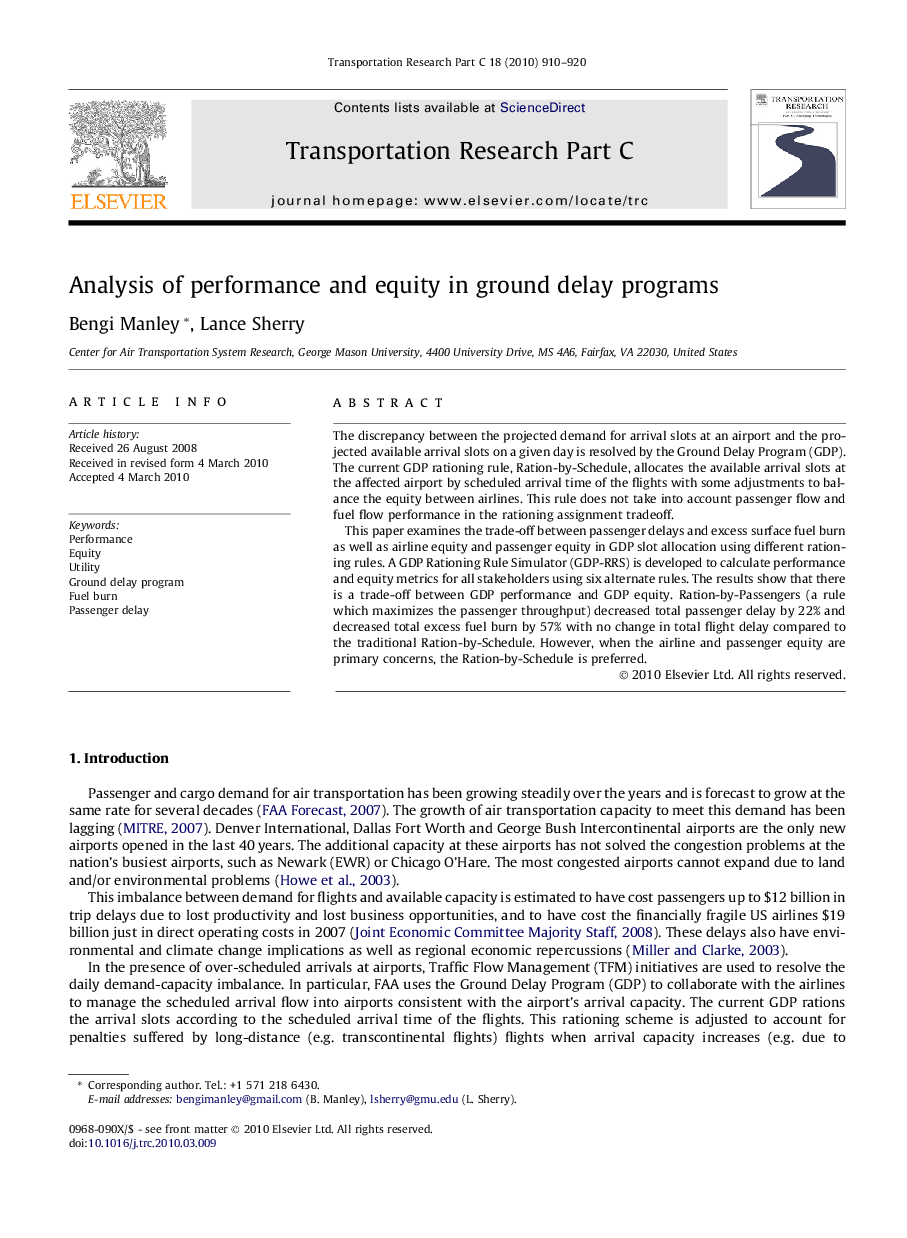| Article ID | Journal | Published Year | Pages | File Type |
|---|---|---|---|---|
| 525138 | Transportation Research Part C: Emerging Technologies | 2010 | 11 Pages |
The discrepancy between the projected demand for arrival slots at an airport and the projected available arrival slots on a given day is resolved by the Ground Delay Program (GDP). The current GDP rationing rule, Ration-by-Schedule, allocates the available arrival slots at the affected airport by scheduled arrival time of the flights with some adjustments to balance the equity between airlines. This rule does not take into account passenger flow and fuel flow performance in the rationing assignment tradeoff.This paper examines the trade-off between passenger delays and excess surface fuel burn as well as airline equity and passenger equity in GDP slot allocation using different rationing rules. A GDP Rationing Rule Simulator (GDP-RRS) is developed to calculate performance and equity metrics for all stakeholders using six alternate rules. The results show that there is a trade-off between GDP performance and GDP equity. Ration-by-Passengers (a rule which maximizes the passenger throughput) decreased total passenger delay by 22% and decreased total excess fuel burn by 57% with no change in total flight delay compared to the traditional Ration-by-Schedule. However, when the airline and passenger equity are primary concerns, the Ration-by-Schedule is preferred.
